Affiliate links on Android Authority may earn us a commission. Learn more.
The best new wearables launched at CES 2022: Garmin, SKAGEN, Razer, and more
January 5, 2022
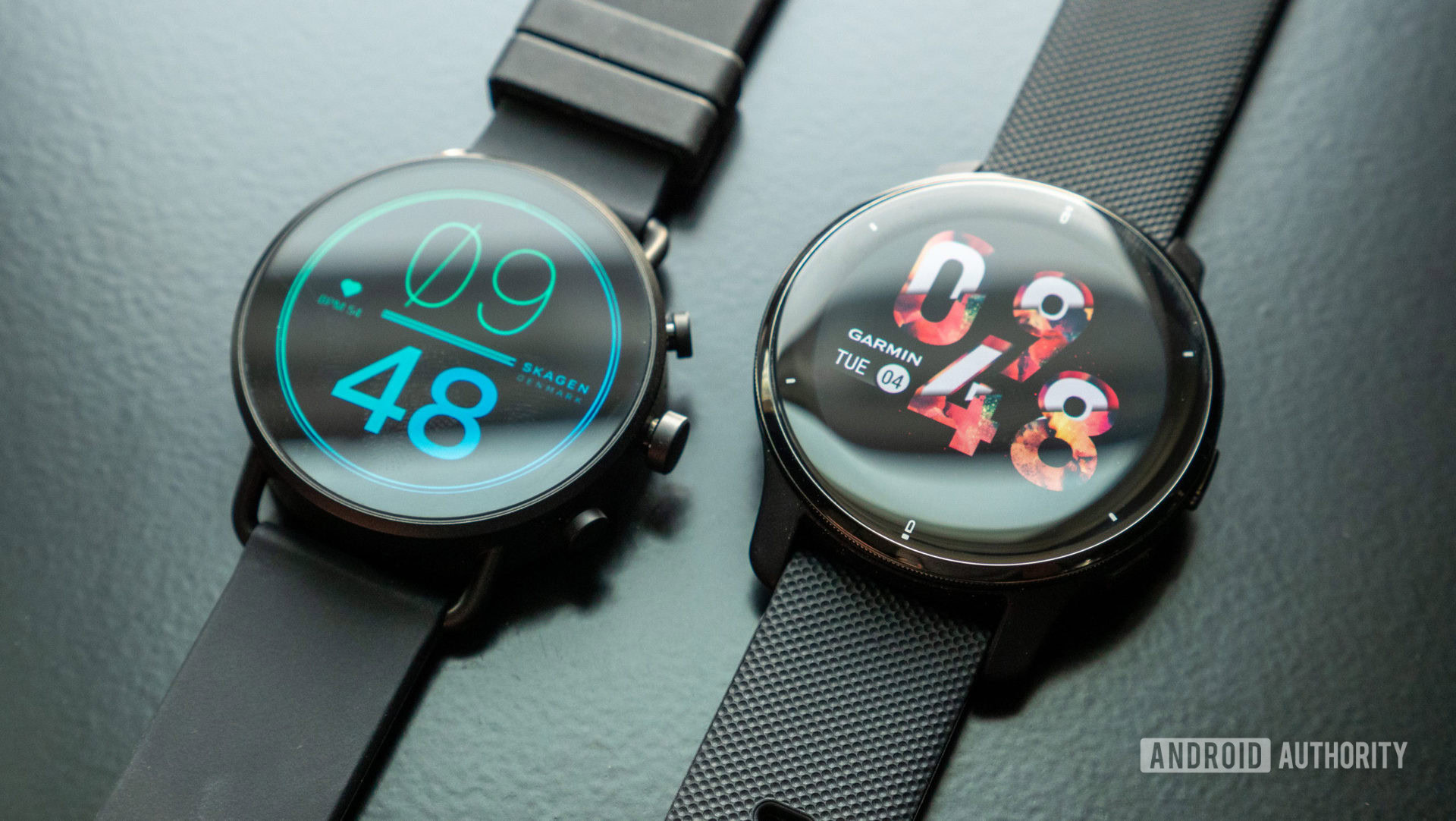
CES takes place right at the beginning of the year, making it the perfect time for companies to debut new wearables, smartwatches, and various other fitness products. This year’s trade show is no different.
From fitness watches, smart rings, smartwatches with gaming company collabs, and more, here are the best new wearables launched at CES 2022.
Garmin Venu 2 Plus
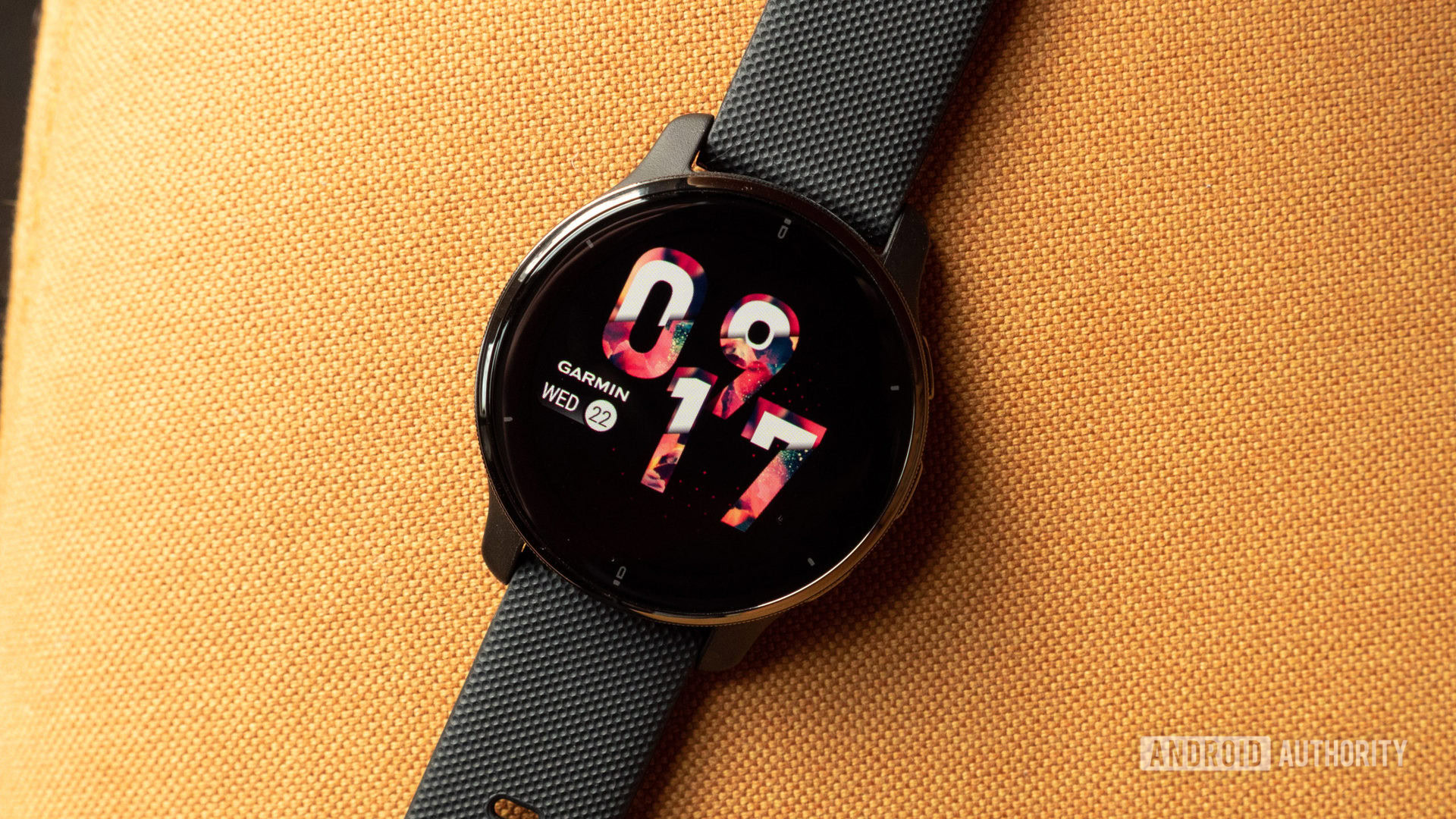
The Garmin Venu 2 was only launched in April, yet Garmin announced an even better follow-up device at CES 2022. The Garmin Venu 2 Plus takes what we liked so much about the original and adds voice assistant and phone calling support.
As long as your Android or iOS phone is paired to the Venu 2 Plus via Bluetooth, the wearable can access your voice assistant of choice, be it Google Assistant, Bixby, or Siri. A long-press of the center side button wakes the voice assistant on your smartphone. You can then talk directly to the watch and hear voice responses, thanks to the integrated mic and speaker.
You can also make and receive phone calls on the watch. It’s as easy as pulling up the dial pad, dialing your contact’s phone number, and hitting the call button. In our experience, call quality has been crisp and clear. We’ve also not experienced any connectivity issues or call drops.
Also read: The complete Garmin wearables buyer’s guide
Aside from those new features, the Venu 2 Plus comes with all the fitness- and health-tracking modes already present on the Venu 2. It can track a ton of sport modes, offers standalone GPS, plenty of onboard music storage, and Garmin Pay support.
This is a pricey wearable. The Garmin Venu 2 Plus is available from Amazon, Garmin, Best Buy, and other retailers for $449.99.
Garmin vivomove Sport
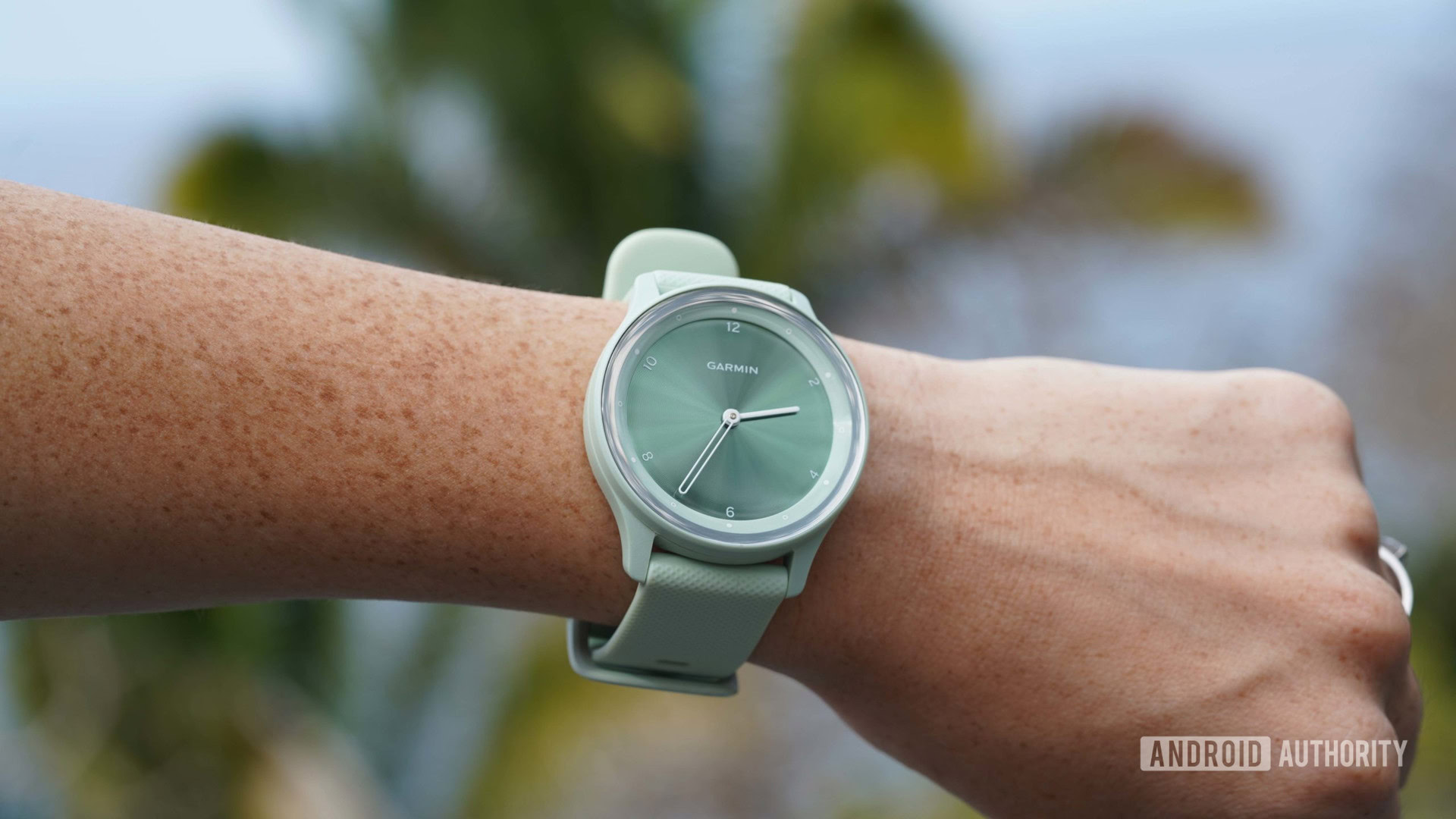
For those who aren’t all-in on smartwatches, a hybrid smartwatch might be the perfect in-between wearable for you. The Garmin vivomove Sport is all about style without sacrificing substance.
On the surface, the vivomove Sport is an analog watch, complete with physical hands. Tap the watch face, and you’ll uncover a hidden display that shows your fitness stats, smartphone notifications, and more. It keeps track of basic activity metrics like steps, calorie burn, distance, and active time, and features Garmin’s Body Battery and stress tracking features. The vivomove Sport also boasts five-day battery life, plus an extra day of watch-only mode if you run out of juice.
The Garmin vivomove Sport is now available from Garmin.com for $179.99.
SKAGEN Falster Gen 6
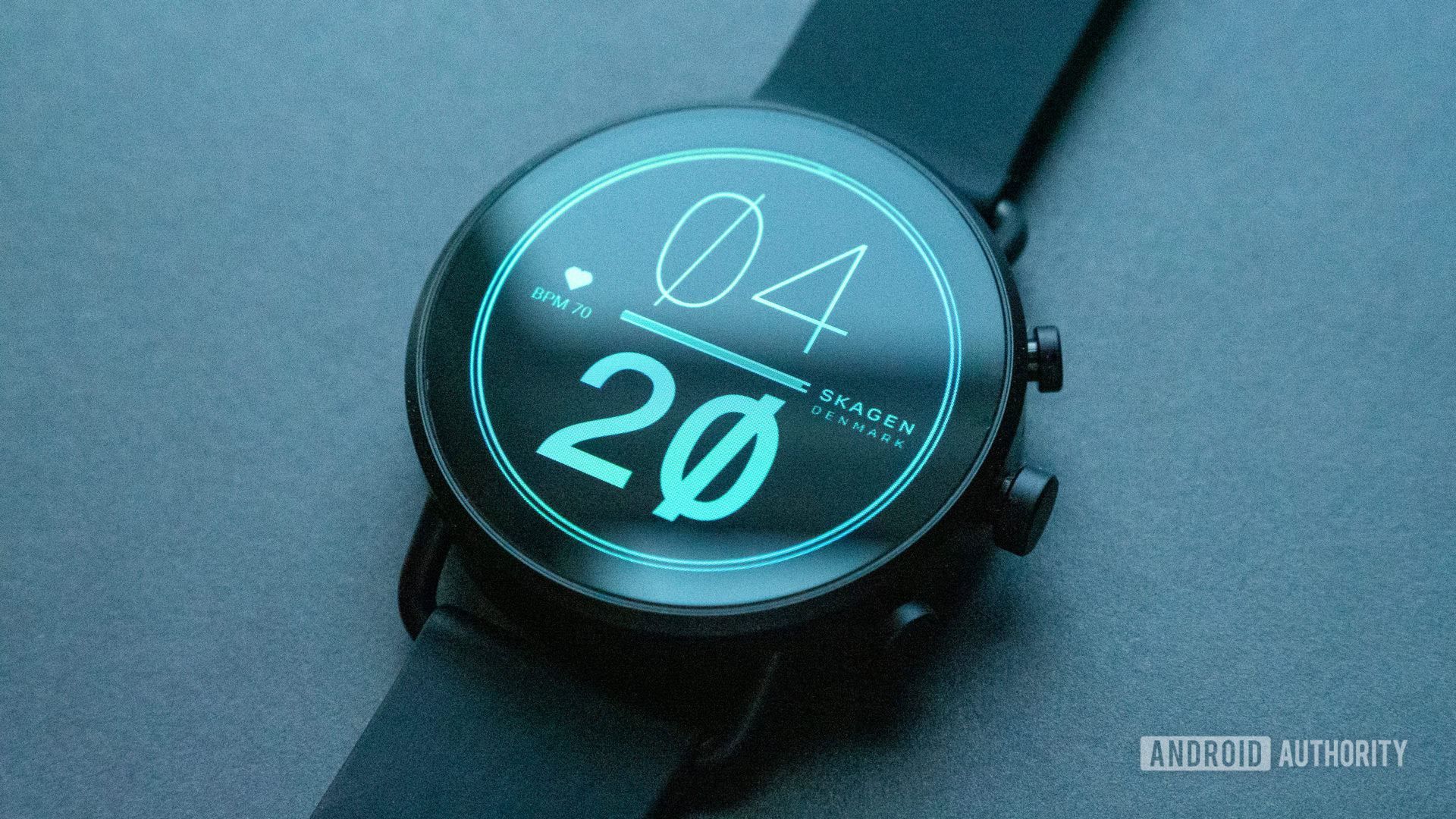
If you’ve been pining for the Fossil Gen 6 but would rather have it in a minimal form factor, the SKAGEN Falster Gen 6 is for you.
It’s based on the same underlying Gen 6 platform as other Fossil Group watches. That means it’s powered by the Qualcomm Snapdragon Wear 4100 Plus chipset and 1GB of RAM. It’s performed quite well in our tests — app loading is fast, and the usual Google Assistant lag is nowhere to be found.
Related: The best Wear OS watches you can buy
The SKAGEN Falster Gen 6 runs on Google’s Wear OS 2 software and is on the shortlist of devices to receive the Wear OS 3 update sometime in 2022. It’s good news for buyers who don’t mind waiting for major software updates, but bad news for everyone else. Wear OS 3 is a significant upgrade from Wear OS 2, but we’ll have to wait for it.
Fossil Group is also bringing Amazon Alexa support to its entire Gen 6 series later this year. We don’t know when, exactly, but the Falster Gen 6 will again be one of the first devices with the voice assistant.
The SKAGEN Falster Gen 6 will be available from SKAGEN’s website for $295.
Razer X Fossil Gen 6
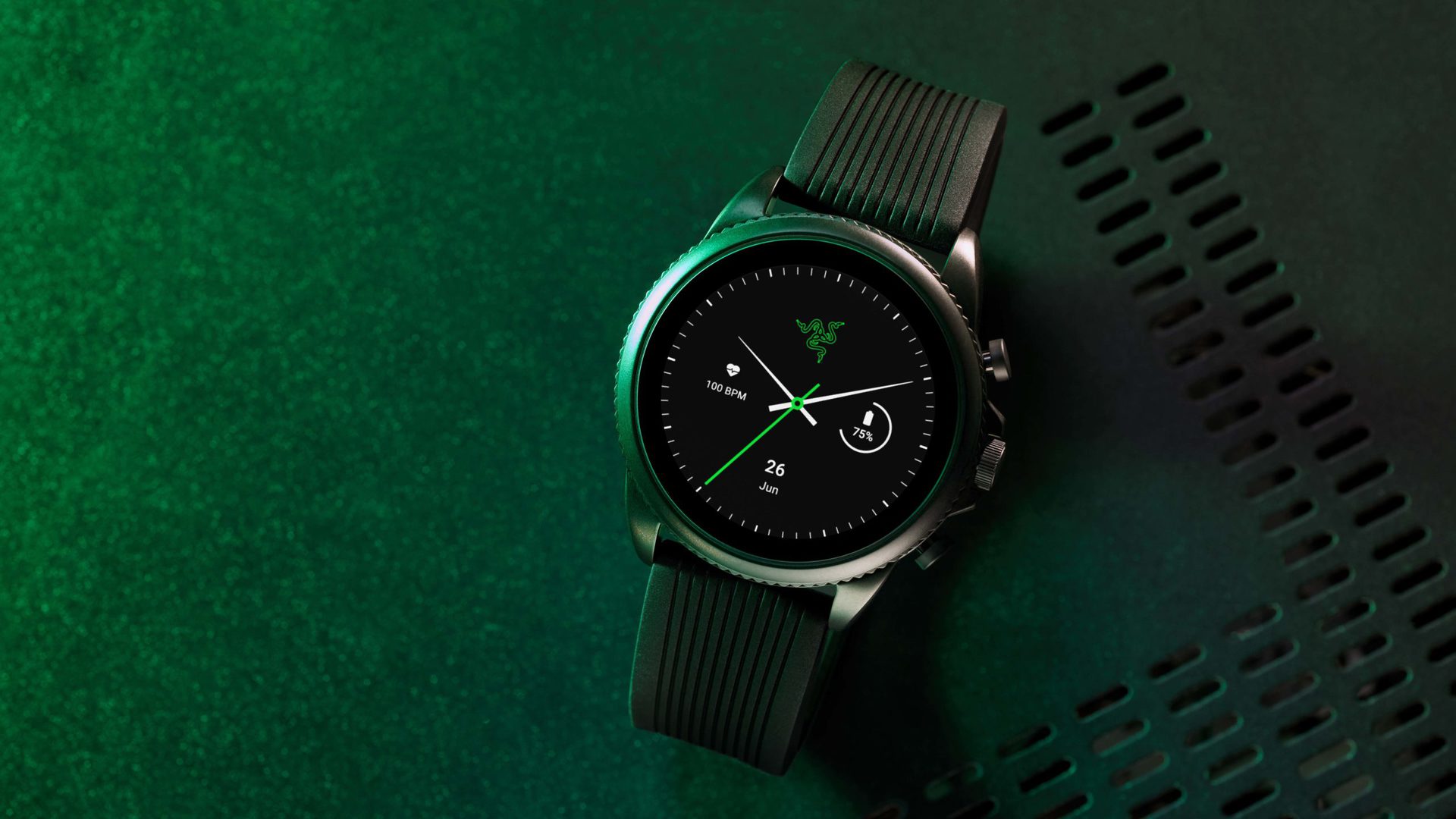
Razer, the uber-popular gaming company, and Fossil teamed up to make a smartwatch. It’s technically not a new smartwatch — just a Razer-branded Fossil Gen 6 — but there’s plenty here for fans of both Razer and Fossil products.
For starters, the Razer X Fossil Gen 6 is nearly the same Fossil Gen 6 that we reviewed in October. It’s one of the first Wear OS watches to run on the Snapdragon Wear 4100 Plus platform, so performance is all-around solid. It also comes with music storage, an accurate SpO2 monitor, and is offered in lots of colorways and styles.
Razer branding is found throughout the entire device. There are three Razer-inspired exclusive watch faces, and the sleek black case contrasts well against the gaming company’s iconic bright green accents on the dials and straps. It’s offered in one 44mm size.
If you want to get your wrists on one, you’ll have to act fast. Only 1,337 of these watches will be made, so supplies are extremely limited. You can pick one up for yourself on January 10 for $329.99.
MindMics
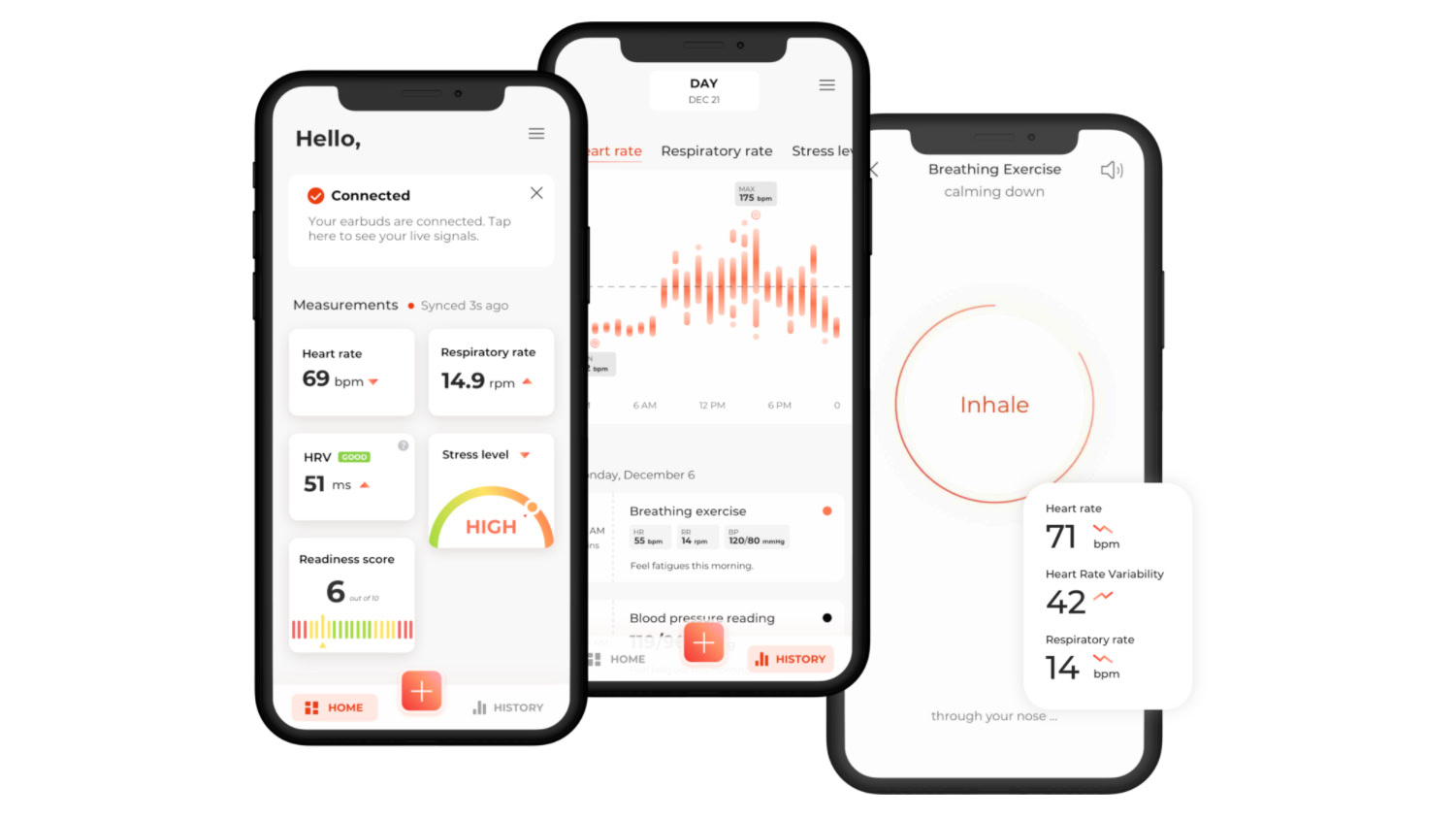
MindMics isn’t yet available in a consumer product, but the technology is too important not to include on our list.
What if you could monitor key body metrics like heart rate and heart rate variability (HRV), as well as your respiratory rate and stress levels, from something as non-invasive as your earbuds? That’s what MindMics’ technology aims to bring to consumers.
Boston-based MindMics uses a technology called Infrasonic Hemodynography, as opposed to the more traditional light-based PPG method, to measure inaudible sounds created by your heart and other internal organs. This method of recording cardiovascular data is fine enough that it can capture individual heart valves opening and closing. Every time you insert your earbuds, MindMics’ technology will get to work recording your heart rate data. This data is then sent to a smartphone app (pictured above) to give you real-time health stats.
Read more: What is heart rate variability and why does it matter?
The heart-rate tracking technology can be embedded into everyday earbuds, so once it makes its way into a consumer product, you’ll be able to insert your earbuds and record vital health data without even thinking about it. And, since it monitors your heart rate through inaudible frequencies, the tech can be used at the same time you’re listening to your music or talking on the phone. Currently, MindMics works with wired earbuds, and will work with wireless earbuds “soon.”
How much of an effect does MindMics’ tracking tech have on your earbuds’ battery life? Speaking to Android Authority, MindMics’ founder and CEO, Anna Barnacka, Ph.D., said it would only shave minutes of battery life off of today’s wireless earbuds. In other words, battery life won’t be a concern if you buy a pair of MindMics-enabled earbuds one day.
Of course, your smartwatch already monitors your heart rate through an optical sensor, and you can wear that at all times throughout the day — unlike earbuds, which you’ll presumably take off once you’re done with your Zoom call or music/podcast listening session. Dr. Barnacka says MindMics is intended to work in conjunction with other wearables, not replace them.
At CES, MindMics announced it had recently completed two clinical trials, both of which demonstrate the effectiveness of Infrasonic Hemodynography compared to what can currently only be obtained through invasive procedures.
Movano Ring
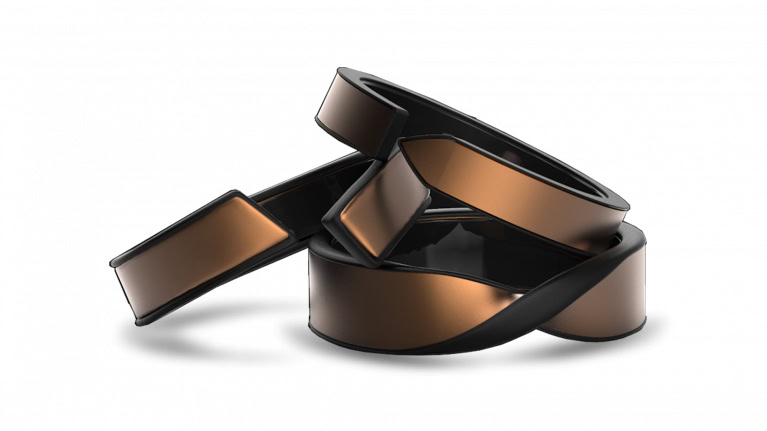
Unfortunately, the world of wearables often neglects women and their needs when it comes to health and wellness. Health company Movano aims to make that a thing of the past with its upcoming smart ring.
The Movano Ring is designed for women of all ages who want actionable insights into their daily health and activity. Make no mistake: this isn’t a 1:1 alternative to the already-popular Oura Ring, though it does track many vital health metrics throughout the day. The Ring will be able to track your sleep quality and duration, sleep stages, respiration, heart rate, heart rate variability, body temperature, blood oxygen, steps, and calorie burn.
Also read: The best fitness trackers from Fitbit, Xiaomi, and more
You can get those metrics from most other fitness trackers out right now. What makes the Movano Ring special, aside from its understated form factor, is its companion app. The app will provide insights based on how you’ve been sleeping, how much you’ve been exercising, and how your resting heart rate has changed over time. After all, what good is a heart rate variability chart if you don’t understand how it affects your body and overall health?
The company is currently conducting clinical trials in hopes to add medically validated data — including non-invasive glucose and cuffless blood pressure monitoring — to the Movano Ring in the future. Movano is also attempting to gain FDA clearance on its heart rate, blood oxygen, and respiration rate tracking, too. Clinical trials and FDA clearance can take quite a long time, though, so there’s no telling when these validations and certifications will become available.
The Movano Ring sounds promising, though it’s still in active development. Movano plans to launch the Ring as a beta product sometime in H2 2022. When it launches publically, it’ll be available in four colorways: black, copper, silver, and gold. Pricing has yet to be established.
Circular Ring

Yet another entry in the smart ring category comes from a French startup called Circular. The Circular Ring, unlike the Movano Ring, appears to be more of an everything-but-the-kitchen-sink tracker.
The Ring can track a variety of activity and health metrics, including your heart rate, heart rate zones, heart rate variability, steps, breathing rate, body temperature, and blood oxygen. It’ll also track your sleep duration and stages, and give you a sleep score when you wake up. You’ll even get more advanced metrics like your sleep debt data, as well as information on your circadian rhythm.
Related: The best sleep trackers
The Ring itself is lightweight at just 4g, offers 5ATM water resistance, and comes with an interchangeable outer shell to protect it during physical activity. Being able to change the color of your ring is already a novel idea, but the added layer of protection is the icing on the cake.
Furthermore, the Ring has a physical button on the outside. You can program the button with single or multiple taps to open apps, perform smart home actions, and more. It also buzzes when smartphone notifications and calls come in, and there’s an alarm function, too. Circular says the ring offers four days of battery life and can be charged to 100% in 60 minutes.
You can pre-order the Circular Ring “soon,” according to Circular’s website, for €259 (~$293) until February 27, 2022. After that date, the price will jump up to €289 (~$327). There’s no word yet on shipping dates for the ring.
Nowatch
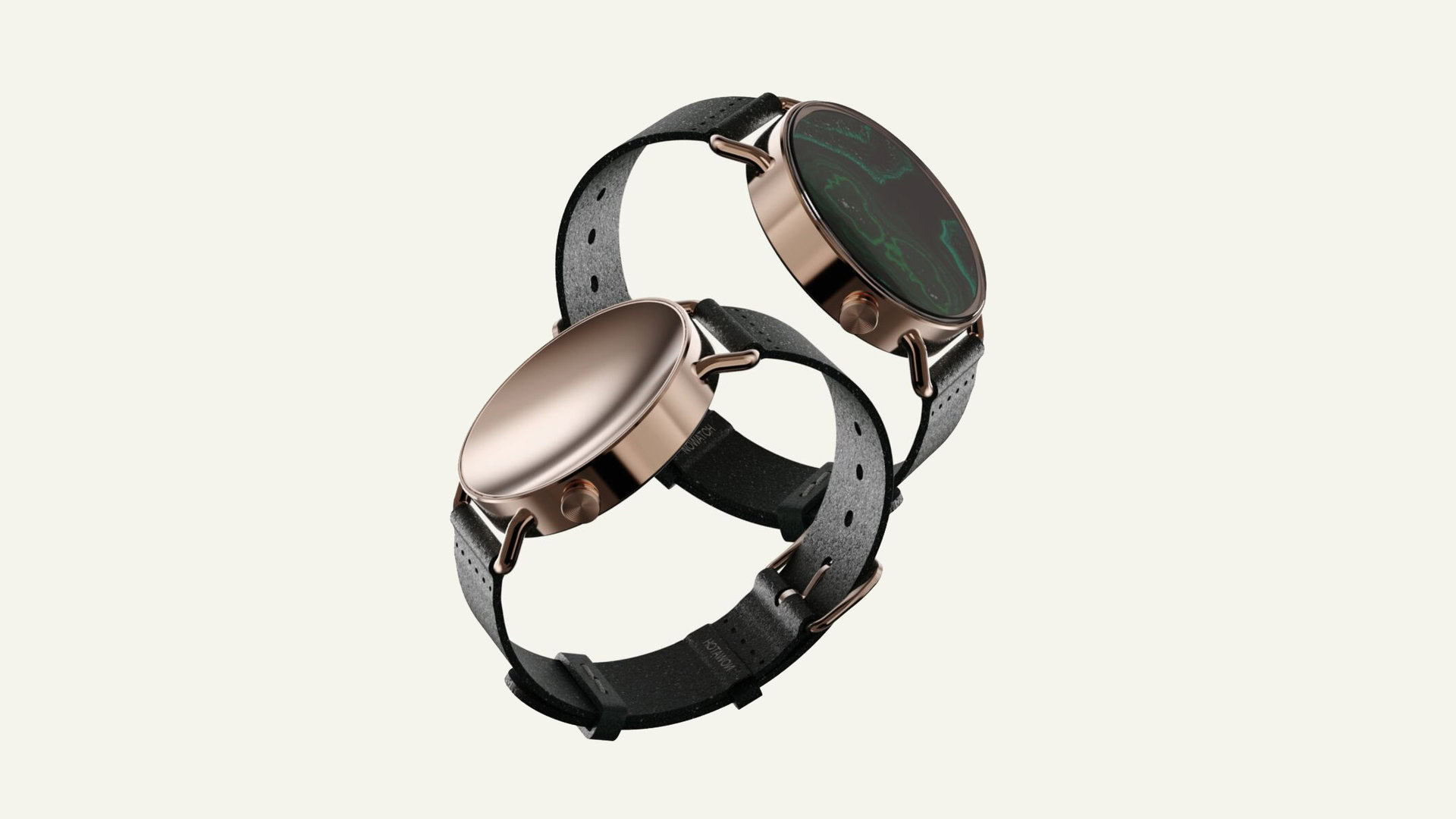
The Nowatch is probably the most unique wearable included on this list. The Nowatch looks like a smartwatch (in fact, it bears a striking resemblance to SKAGEN’s new smartwatch) but has no traditional “smart” features. It’s a health and wellness tracker through and through.
The Nowatch’s main pitch is its ability to “predict” stress levels in your body. It does so by monitoring your cortisol levels through electrodermal activity (EDA) sensing, similar to what we’ve seen on the Fitbit Sense. The team behind the Nowatch claims it can predict your cognitive zones up to one hour in advance. If it senses you’re about to become overstimulated, for instance, you’ll be notified so you can go take a walk, meditate, or do something else to try to calm down. Nowatch’s stress-tracking algorithms were developed by Philips.
Aside from measuring stress levels, the Nowatch can monitor your body temperature, resting and active heart rate, sleep duration and stages, and breathing rate. You can’t track specific sport activities with the Nowatch. Instead, the wearable focuses on energy expenditure by tracking the number of metabolic calories needed to sustain your basal metabolic rate (BMR).
Learn more: Everything you need to know about tracking calories
The Nowatch offers 14-day battery life, a 3ATM water-resistance rating, and Bluetooth LE connectivity. The face of the device supports magnetically interchangeable, stainless steel discs that you can swap out to suit your mood. The discs on offer include labradorite, amethyst, white agate, lapis lazuli, tiger’s eye, malachite, and falcon’s eye, and are all ethically sourced from India. Case options for the watch include gold, silver, and rosé.
The Nowatch will be available for pre-order starting February 1, 2022, for $599. The device will ship sometime in Spring 2022.
That’s it for the best new wearables from CES 2022. Want to learn more about our favorites from the trade show? Check them out below.
- CES 2022: All the most important announcements
- The best new laptops and Chromebooks from CES 2022
- The best new audio products from CES 2022
- The best phones launched at CES 2022
- The best TVs and monitors from CES 2022
- The best smart home tech we saw at CES 2022
- The best cars and concepts from CES 2022
Thank you for being part of our community. Read our Comment Policy before posting.